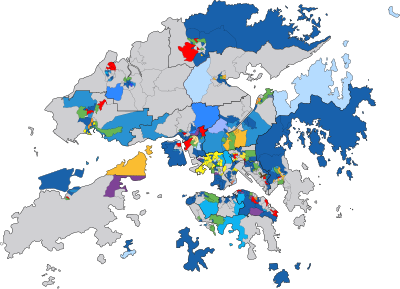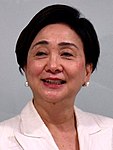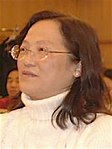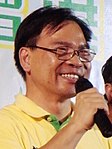
A | B | C | D | E | F | G | H | CH | I | J | K | L | M | N | O | P | Q | R | S | T | U | V | W | X | Y | Z | 0 | 1 | 2 | 3 | 4 | 5 | 6 | 7 | 8 | 9
| |||||||||||||||||||||||||||||||||||||||||||||||||||||||||||||||||||||||||||||||||||||||||||||||||||||||||||||||||||||||||||||||||||||||||||||
All Elected Constituencies 431 (of the 458) seats in all 18 Districts Councils | |||||||||||||||||||||||||||||||||||||||||||||||||||||||||||||||||||||||||||||||||||||||||||||||||||||||||||||||||||||||||||||||||||||||||||||
|---|---|---|---|---|---|---|---|---|---|---|---|---|---|---|---|---|---|---|---|---|---|---|---|---|---|---|---|---|---|---|---|---|---|---|---|---|---|---|---|---|---|---|---|---|---|---|---|---|---|---|---|---|---|---|---|---|---|---|---|---|---|---|---|---|---|---|---|---|---|---|---|---|---|---|---|---|---|---|---|---|---|---|---|---|---|---|---|---|---|---|---|---|---|---|---|---|---|---|---|---|---|---|---|---|---|---|---|---|---|---|---|---|---|---|---|---|---|---|---|---|---|---|---|---|---|---|---|---|---|---|---|---|---|---|---|---|---|---|---|---|---|
| Registered | 3,693,942 | ||||||||||||||||||||||||||||||||||||||||||||||||||||||||||||||||||||||||||||||||||||||||||||||||||||||||||||||||||||||||||||||||||||||||||||
| Turnout | 1,467,229 (47.01%) | ||||||||||||||||||||||||||||||||||||||||||||||||||||||||||||||||||||||||||||||||||||||||||||||||||||||||||||||||||||||||||||||||||||||||||||
| |||||||||||||||||||||||||||||||||||||||||||||||||||||||||||||||||||||||||||||||||||||||||||||||||||||||||||||||||||||||||||||||||||||||||||||
 Map of the winning party by constituency | |||||||||||||||||||||||||||||||||||||||||||||||||||||||||||||||||||||||||||||||||||||||||||||||||||||||||||||||||||||||||||||||||||||||||||||
The 2015 Hong Kong District Council elections were held on 22 November 2015.[1] Elections were held to all 18 District Councils with returning 431 members from directly elected constituencies after all appointed seats had been abolished.
A record-breaking 1.4 million voters, or 47 per cent of the registered voters, went to cast their votes. The pro-Beijing camp retained its control of all 18 councils with the Beijing-loyalist party Democratic Alliance for the Betterment and Progress of Hong Kong (DAB) maintained the largest party far ahead of other parties. The pan-democrats failed to seize control of the Kwai Tsing District Council, a traditional stronghold of the pan-democrats.
Both sides lost their heavyweight incumbent Legislative Councillors. Albert Ho of the Democratic Party and Frederick Fung of the Hong Kong Association for Democracy and People's Livelihood (ADPL) who were both elected through District Council (Second) constituency lost their seats while Civic Party's Kenneth Chan failed to take a seat in the Southern District. DAB's incumbent legislators Christopher Chung and Elizabeth Quat both lost their seats to pro-democracy newcomers in which Chung lost his long hold seat to a relatively unknown "umbrella soldier" Chui Chi-kin.
Activists in the 2014 Occupy protests, who are dubbed the "umbrella soldiers", had better-than-expected results with eight of them winning a seat by beating some incumbents.[2] The pan-democrat Neo Democrats became the best performers in the election, winning 15 out of their 16 bids and doubled their seats from 7 to 15 seats.
Boundary changes
As proposed in the Democratic Party's modified electoral reform package passed in 2010, all appointed seats were abolished in this election. After a review on the number of elected seats for each District Council having regard to the population forecast in mid-2015, the Electoral Affairs Commission proposed to increase 19 elected seats in 9 District Councils:[3]
- 1 new seat for in each Tsuen Wan and North District Councils;
- 2 new seats for each Sham Shui Po, Kowloon City, Kwun Tong, Yau Tsim Mong and Sha Tin District Councils;
- 3 new seats for the Sai Kung District Council; and
- 4 new seats for the Yuen Long District Council.
The total number of elected seats for the 2015 elections was increased by 19 from 412 to 431. Additionally, the boundaries of the Eastern and Wan Chai Districts were adjusted by transferring the Tin Hau and Victoria Park district council constituency areas from the Eastern District to the Wan Chai District.
Pre-election events
Umbrella movement
The 2014 Hong Kong protests sparked a fierce tussle between the pan-democrats and pro-Beijing camp as the democrats hailed a "civic awakening" while the pro-Beijing camp mobilised supporters to condemn the 79-day street blockade as an affront to the rule of law. The November District Council election was to be seen as the first big electoral test of the post-Occupy era. Both camps said events to come would have a bigger effect on voters, while the extent to which a political awakening among the city's youth would lead them to turn out to vote remains unclear. The pan-democrats encouraged young people who participated in the Occupy movement to register and vote in the district council poll.[4]
Lead-in-water scandal
The lead-in-water scandal began in June 2015 when the Democratic Party legislator, Helena Wong Pik-wan announced that testing of drinking water at Kai Ching Estate in Kowloon revealed lead contamination.[5] The Hong Kong Housing Authority subsequently confirmed that the levels of lead exceeded the standard established by the World Health Organization.[5] Since the initial discovery at Kai Tak, lead contamination of drinking water has been found at numerous other housing estates, schools, and public buildings across Hong Kong. The lead contamination scandal caused widespread concern among the public in which the Democratic Party made a major comeback by being the first to reveal the scandal while the pro-Beijing camp was told to downplay the issue.[6]
HKU pro-vice-chancellor selection controversy
An alleged political interference behind the University of Hong Kong governing council's rejection of Johannes Chan's recommended appointment to the post of pro-vice-chancellor in charge of staffing and resources. Chan, dean of the Faculty of Law sparked its climax in October 2015. The decision has received international condemnation, and is being viewed as part of a Beijing-backed curtailing of academic freedoms that will damage Hong Kong's academic reputation.[7]
Polling irregularities
Following the last election in 2011, pan-democrats have complained of irregularities in voter registration records, and a number of candidates who lost in marginal seats made allegations of electoral fraud to the police. The government was criticised for failing to address the issue back in 2006 after alleged instances where multiple voters had registered under a same address surfaced. Before the last day for voters to check and update their particulars in order to vote in November, and for the public to report suspicious cases, the pan-democratic parties lodged a flood of complaints to the Registration and Electoral Office on 24 August 2015 about the records of over 550 voters with suspicious or false residential addresses on the eve of the election, and warning they could be "the tip of the iceberg".[8]
Catholic bishop's anti-gay pastoral letter
On 5 November 2015, the Catholic bishop of Hong Kong John Tong urged his flock to consider candidates' views on gay rights when voting in the district council elections in a pastoral letter, as certain social movements "are challenging and twisting" the city's core values on marriage and family. "In the upcoming district council election and future polls, I urge all believers … to consider candidates' and their parties' stance on family and marriage issues, as well as their position on" a law to ban discrimination on grounds of sexual orientation, Tong wrote The pan-democratic parties - who have often found common cause with the Catholic Church on matters of democracy and human rights - criticised Tong's remarks. People Power legislator Raymond Chan Chi-chuen, who is openly gay, criticised Tong's message and said it reflected a backward view of social movements and possibly deviated from the Vatican's line. A spokesman for the Labour Party said Tong's view was "obviously different" from the remarks of Pope Francis, who in 2013 said: "If accept the Lord and have goodwill, who am I to judge them? They shouldn't be marginalised. The tendency is not the problem."[9]
Contesting parties and candidates
Parties
In the pro-Beijing camp, the flagship party Democratic Alliance for the Betterment and Progress of Hong Kong (DAB) filled a total of 171 candidates in the contest, followed by the Hong Kong Federation of Trade Unions with a total of 51 candidates of which 3 of them were also DAB members. The two relatively new pro-Beijing parties, the middle-class-oriented New People's Party (NPP) and the Business and Professionals Alliance for Hong Kong (BPA) developed their forces at district level since their creations in 2011 and 2012 respectively. The New People's Party got 4 of the 12 candidates elected in 2011 and at least eight incumbent councillors had since joined the party, while a merger with Civil Force, a local political group with strongholds in the New Territories East, brought the number up to 30.[10] The NPP had a total of 42 contestants while the BPA had 16, slightly fewer than another pro-business party, the Liberal Party's 20 which four of the Liberal candidates failed to avoid direct competition with other pro-Beijing parties and would have to fight a fellow pro-Beijing candidate.[11]
The largest pro-democratic party Democratic Party filled 95 candidates, a sharp decline from the 2011 election's 132. The Hong Kong Association for Democracy and People's Livelihood (ADPL) came after the Democrats with 26 candidates, followed by the Civic Party's 25, Neo Democrats's 16, Labour Party's 12, People Power's 9, Neighbourhood and Workers Service Centre's 6 and League of Social Democrats's 5. Many new pro-democracy groups formed by young people after the Occupy movement, including the Youngspiration, the Tsz Wan Shan Constructive Power, which aimed at Wong Tai Sin District Council, the North of the Rings, which worked in Sheung Shui and Fanling in North District, the Kowloon East Community which had its eyes on Kwun Tong District Council, and some other groups. More than 40 activists were running in the district council elections and some of them were with the "nativist" agenda.[12] While most Umbrella candidates have joined a co-ordination mechanism run by pan-democratic parties to avoid clashes between allies, six of them refused to do so and are running against the Democratic Party in areas where the party has had a close fight with the pro-establishment camp in previous elections.[13]
Candidates
A record-high 951 nominations were received for which six nominees withdrew their candidatures before the deadline. A total of 66 seats were uncontested, 10 fewer than in 2011, in which almost all of them went to the pro-Beijing camp. The Democratic Alliance for the Betterment and Progress of Hong Kong claimed 20 unclaimed seats, followed by New People's Party with seven and the Hong Kong Federation of Trade Unions (FTU) with six seats, while the Liberal Party took two. Two Legislative Council members Alice Mak Mei-kuen and Kwok Wai-keung of the FTU in Kwai Tsing's Wai Ying and Eastern District's Provident retained their seats without contest.[14]
The Legislative Council members elected through District Council (Second) constituency in 2012, the former chairman of the Democratic Party Albert Ho and former chairman of the Hong Kong Association for Democracy and People's Livelihood (ADPL) Frederick Fung faced fierce challenges in their Tuen Mun's Lok Tsui and Sham Shui Po's Lai Kok constituencies. Ho faced 5 rivals including former president of the Law Society of Hong Kong Junius Ho Kwan-yiu, radical localist group Civic Passion's Cheng Chung-tai and three other independent candidates. Fung faced his former party member Eric Wong Chung-ki and FTU's Chan Wing-yan.[14] Ho and Fung eventually lost their District Council seat and will have to adopt a new constituency for LegCo elections. Another District Council (Second) legislator, FTU's Chan Yuen-han and District Council (First) legislator, DAB's Ip Kwok-him are stepping down from Wong Tai Sin's Lung Sheung and Central and Western District's Kwun Lung, meaning that they will retire from their constituencies in next year's Legislative Council election.









